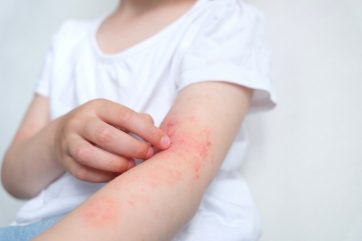
Maryland-based Alphyn Biologics announced that the second cohort in its Phase IIa trial evaluating zabalafin hydrogel (AB-101a) in AD and infected AD skin met all its endpoints.
CEO Neal Koller said that based on the results from both cohorts in the Phase IIa trial, the company is preparing for a global Phase IIb trial of its lead candidate in AD which will initiate in the second half of 2024.

Discover B2B Marketing That Performs
Combine business intelligence and editorial excellence to reach engaged professionals across 36 leading media platforms.
The randomised, placebo-controlled Phase IIa trial (ACTRN12622000395730) enrolled 41 patients and assessed the safety, tolerability, and efficacy of zabalafin hydrogel, a non-steroidal, topical AD treatment, against the bacterial component of AD and AD inflammation component in mild, moderate, and severe disease.
Compared to the baseline, the trial demonstrated significant and clinically relevant improvements in itch, quality-of-life (QoL), inflammation, and safety, with minimal side effects and strong patient tolerability.
In the second cohort, 90% of patients experienced a one-point reduction in Investigator Global Assessment (IGA) score, demonstrating nearly all patients were helped and showing some improvement in their AD. Around 50% of patients experienced an improvement of two or more.
The IGA is a five-point scale providing a clinical assessment of AD severity ranging from 0 to 4, where 0 indicates clear, 2 is mild, 3 is moderate, and 4 indicates severe AD.

US Tariffs are shifting - will you react or anticipate?
Don’t let policy changes catch you off guard. Stay proactive with real-time data and expert analysis.
By GlobalDataAlphyn announced data from the first cohort of the trial in July 2023. The first cohort also met all its endpoints.
The company is planning on launching two global Phase IIb trials, one in AD while the other will focus on AD patients with a secondary bacterial infection. The Phase IIb trials will include sites in the US, Canada, Europe and Australia, with potential to open sites in Asia.
Atopic dermatitis landscape
According to data from the Global Burden of Disease project, approximately 223 million people were living with AD in 2022.
A GlobalData report predicts the AD market to be worth $24.4b across the 61 geographical markets in 2030, with 71.8% of that market from the seven major markets (7MM: US, France, Germany, Italy, Spain, UK, and Japan).
Unmet needs include a lack of therapeutic options for chronic hand eczema, better long-term disease control and management, more tolerable topical treatment options, improved patient treatment compliance, and increased diversity in AD clinical trial recruitment.
With several promising pipeline agents in late-stage development, it is expected that some of these unmet needs will be addressed by 2030.
GlobalData is the parent company of the Clinical Trials Arena.





